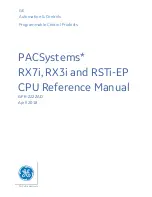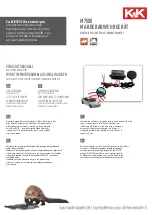
SM4 Manual
by
MRM-Racing
V3.0
46
That is why we start testing the boost control in a low gear.
Don’t go full throttle right away. Start with feeling on the throttle that the boost pressure stops on
a reasonable level. If it overshoots on part throttle, it will overboost massively on full throttle.
If everything is good on first gear, then try second gear. And so on.
As a rule of thumb, it is said that the highest boost pressure will be found on third gear.
When we have come this far, we can log the boost pressure, and fine tune
Boost range
and
the
Boost offset
table to achieve the target boost.
Lets say we have made a test run, and logged engine speed,
Boost setpoint
and actual Boost
pressure. Then we can make adjustments in this table. And lets say the turbo spooled up just
before 4000 rpm, and that we did not pull higher than 7000 rpm to be safe.
First we check at the maximum boost pressure. Lets say that at 4000 rpm we got 235 KPA
boost instead of the wanted 250 KPA. And that we got the wanted 250 KPA at 6000 rpm. And
that we got 250 KPA at 7000 rpm, instead of the wanted 240 KPA. Then we add, 250 - 235 =
15, to the cell at 4000 rpm and 250 KPA, and then subtract, 250 – 240 = 10, from the cell at
7000 rpm and 250 KPA. (250 KPA is near to 240 KPA).
Then we extrapolate the values down to 2000 rpm and up to 8000 rpm. We leave the value at
6000 rpm since we got the boost pressure that we wanted at that engine speed.
Lastly, we copy all the values we got at the 250 KPA row to the 190 KPA row.
Then we get a table that looks like in
Fel!Hittar inte referenskälla.
nedan.
Modified Boost offset table
We log new test runs, and add or subtract values to the
Boost offset
table cells until we are
satisfied with the regulated boost pressure around 250 KPA.
We then make a temporary change to the
Boost setpoint
table to select 190 KPA boost over
all rpm’s. Then we log a test run at this lower boost, and modify the cells in the Boost offset
table for 190 KPA until we get exactly that boost pressure. This time we run a safe, low boost
pressure, so we can carefully pull all the way up to rev limit.
















































